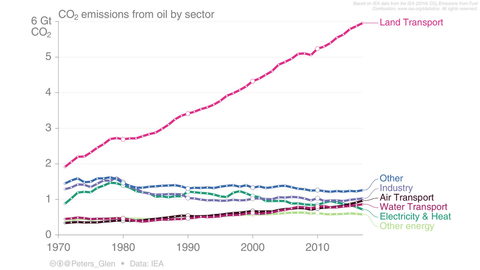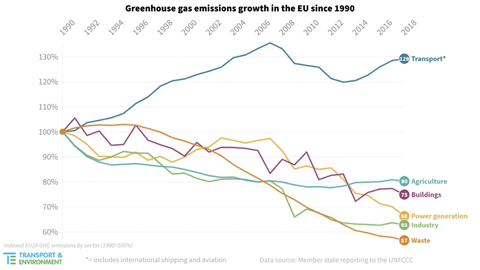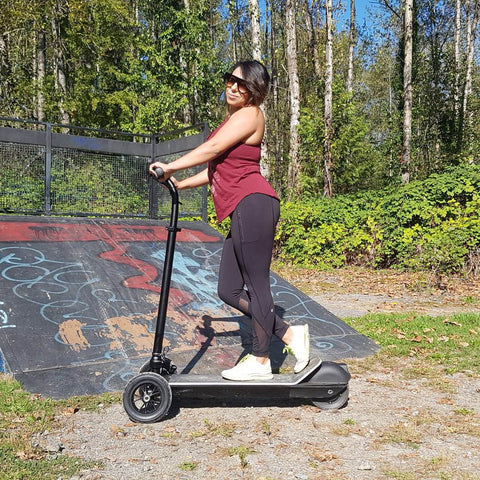It’s beyond question that we must drastically reduce carbon emissions in the coming years to head off the worst effects of climate change. How we do that has been a matter of considerably drawn-out debate. As individuals, it can be hard to know where to invest our time and money. Our actions can seem to have little impact; the problem can feel even more overwhelming in the midst of the COVID-19 pandemic, when many of the systems we’ve depended on have shown themselves inadequate or unsafe.
Extreme weather has already driven up energy usage. A New York City greenhouse gas inventory found an 18% increase in usage in the summer of 2018, and a 13% increase during the winter months. These increases have not, however, been offset by a decrease in auto emissions.
The study also found that emissions from passenger cars, the greatest contributor to the city’s air pollution, have only fallen by 1% since 2005.
oil-sector-emissions-land-transport-rapid-increase-over-decades
emissions over decades rapidly increasing in transportation
Indeed, the EPA has found that transportation costs overall, including cars, trucks, ships, trains, and planes, make up over 28% of greenhouse gas emissions in the U.S., the largest contributor to climate change in the country. Over half of these emissions come from passenger cars and trucks. While the auto industry has been investing heavily in the development of electric cars, they are not moving quickly enough to replace internal combustion engines in the next few decades. Cars also have lifecycles spanning decades, and this drastically increases the time it will take for electric cars to make a real impact on emissions, not to mention the weight upon both infrastructure and the supply chain to produce and move 4,000-7,000 pound vehicles, even if they are electric.

The environmental benefits of owning a scooter have become even more apparent during the COVID-19 crisis, during which we have seen a historic drop in carbon emissions due to lockdowns, travel restrictions, and work-from-home orders. Anxiety about taking public transit in major cities has led to majorly increased demand for electric scooters.
The industry is rebounding from a “nuclear winter,” says Quemuel Arroyo, the global head of community at Charge, a company setting up public charging stations for e-scooters. Scooters are now seeing a “much higher demand than ever before,” and that demand is trending toward more convenient and eco-friendly private scooters, investors believe. The more people in urban areas adopt micromobility solutions like privately-owned electric scooters, the better the news will be for the environment.
There may be little doubt about the harmful effects of fossil fuel emissions on global temperatures. Governments and private industry need to do much more to lower emissions in the coming years. But there should also be little doubt that owning a fast, reliable, portable, and fun electric scooter like Eswing is one of the best ways individuals can lessen their environmental impact and make positive change for the world.



